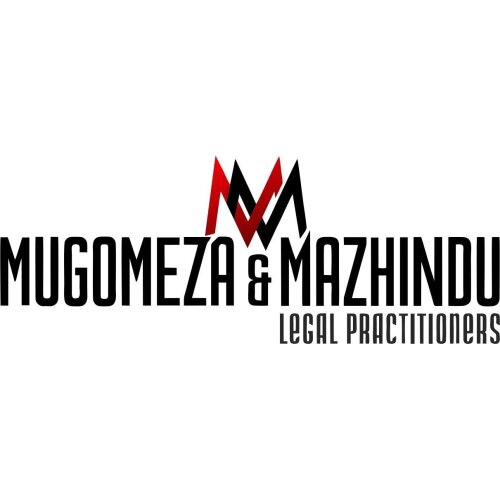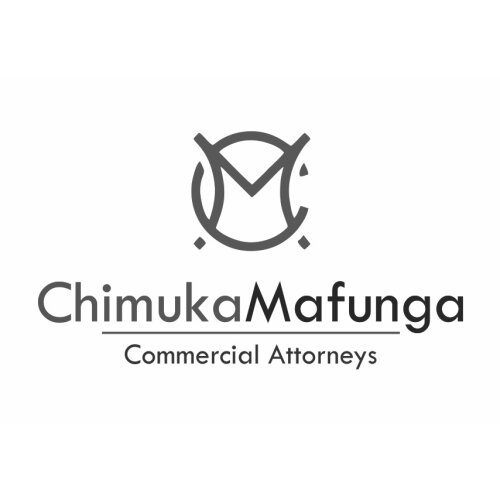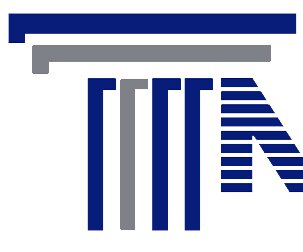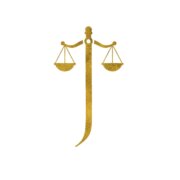Best Intellectual Property Lawyers in Zimbabwe
Share your needs with us, get contacted by law firms.
Free. Takes 2 min.
Or refine your search by selecting a city:
List of the best lawyers in Zimbabwe
About Intellectual Property Law in Zimbabwe
Intellectual Property (IP) law in Zimbabwe is a crucial area that protects the creations of individuals and businesses, including inventions, designs, and artistic works. It provides legal protection to the creators to ensure that they have exclusive rights to use, develop, and profit from their intellectual creations. The Zimbabwe Intellectual Property Office (ZIPO) is primarily responsible for the administration of IP laws in the country. Zimbabwe is also a member of various international treaties related to IP, including the World Intellectual Property Organization (WIPO), which further aligns its laws with international standards.
Why You May Need a Lawyer
There are several scenarios where individuals and businesses may require legal assistance in Intellectual Property:
- Registering a Trademark: Legal experts can guide through the complex process of trademark registration to ensure compliance with legal provisions.
- Patent Application: Applying for a patent involves detailed technical and legal documentation that experts can help navigate.
- Copyright Disputes: Legal intervention may be necessary to resolve disputes over ownership or usage rights of creative works.
- IP Litigation: In cases of infringement or misuse of intellectual property, a lawyer can provide representation and advice.
- Licensing Negotiations: Assistance in drafting and negotiating licenses to ensure favorable terms and compliance.
- Due Diligence: Evaluating IP assets during mergers and acquisitions for proper valuation and risk assessment.
Local Laws Overview
Zimbabwe's Intellectual Property Laws are governed by several key pieces of legislation, notably the Patents Act, the Copyright and Neighbouring Rights Act, the Trademarks Act, and the Industrial Designs Act. Each of these laws outlines the scope, registration, and enforcement of IP rights.
The Patents Act provides patent protection for new inventions, for a period typically lasting 20 years from the filing date. The Trademarks Act regulates the registration and protection of trademarks, ensuring that businesses have exclusive rights to symbols or names that identify their products or services.
The Copyright and Neighbouring Rights Act protects the rights of creators of literary, musical, and artistic works, to control reproduction and distribution. The Industrial Designs Act ensures the protection of unique design features of industrial products. Understanding these laws is essential for effective IP management.
Frequently Asked Questions
What is the duration of patent protection in Zimbabwe?
Patent protection in Zimbabwe lasts for 20 years from the date of filing, subject to the payment of annual renewal fees.
Can I apply for an international trademark through Zimbabwe?
Yes, as a member of WIPO, Zimbabwe allows for international registration of trademarks under the Madrid Protocol.
How do I register a copyright in Zimbabwe?
Copyright in Zimbabwe is automatic upon the creation of a work, provided it meets the criteria of originality and creativity. Registration is not mandatory.
What constitutes trademark infringement?
Trademark infringement occurs when there is unauthorized use of a trademark in a manner that causes confusion with the registered trademark-holder's products or services.
Is there protection for traditional knowledge and folklore in Zimbabwe?
ZIPO has provisions that address intellectual property rights related to traditional knowledge and folklore, acknowledging their cultural and economic value.
What remedies are available for IP infringement?
Legal remedies for IP infringement may include injunctions, monetary compensation, or orders for the destruction of infringing goods.
Are software programs eligible for patent protection?
In Zimbabwe, software programs are typically protected under copyright law, although certain technical aspects may be patentable if they meet eligibility criteria.
How can I oppose a trademark application?
Opposition to a trademark application must be filed within three months of publication in the Trademark Journal, citing grounds prescribed by law.
What is the role of ZIPO?
The Zimbabwe Intellectual Property Office (ZIPO) administers IP laws, processes applications for IP rights, publishes IP information, and facilitates IP awareness.
How do I enforce my IP rights internationally?
Enforcement of IP rights internationally depends on mutual agreements and treaties to which Zimbabwe is a party, allowing for reciprocal recognition and enforcement of rights.
Additional Resources
For additional information and assistance, consider the following resources:
- Zimbabwe Intellectual Property Office (ZIPO): The primary body responsible for the registration and enforcement of IP laws in Zimbabwe.
- World Intellectual Property Organization (WIPO): Offers resources and support for international aspects of IP.
- The African Regional Intellectual Property Organization (ARIPO): Provides a framework for cooperation in IP issues within Africa.
- Local Universities and Law Schools: Often offer IP workshops, seminars, and have writing centers for legal advice.
- Professional Legal Associations: These associations can often provide referrals for qualified IP lawyers experienced in local laws and practices.
Next Steps
If you require legal assistance in Intellectual Property, follow these steps:
- Identify your specific legal needs related to IP - Are you looking to register, enforce, or defend your IP?
- Consult with a qualified IP attorney who specializes in the area you need help with.
- Gather all relevant documentation, including existing IP registrations, evidence of use, or any correspondence if dealing with a dispute.
- Consider reaching out to the Zimbabwe Intellectual Property Office for guidance or utilizing their services.
- Stay informed on your rights and regularly review WIPO or ZIPO publications for the latest updates in IP law and policy.
Taking these steps will help protect your intellectual property effectively and leverage it strategically within Zimbabwe and beyond.
Lawzana helps you find the best lawyers and law firms in Zimbabwe through a curated and pre-screened list of qualified legal professionals. Our platform offers rankings and detailed profiles of attorneys and law firms, allowing you to compare based on practice areas, including Intellectual Property, experience, and client feedback.
Each profile includes a description of the firm's areas of practice, client reviews, team members and partners, year of establishment, spoken languages, office locations, contact information, social media presence, and any published articles or resources. Most firms on our platform speak English and are experienced in both local and international legal matters.
Get a quote from top-rated law firms in Zimbabwe — quickly, securely, and without unnecessary hassle.
Disclaimer:
The information provided on this page is for general informational purposes only and does not constitute legal advice. While we strive to ensure the accuracy and relevance of the content, legal information may change over time, and interpretations of the law can vary. You should always consult with a qualified legal professional for advice specific to your situation.
We disclaim all liability for actions taken or not taken based on the content of this page. If you believe any information is incorrect or outdated, please contact us, and we will review and update it where appropriate.
Browse intellectual property law firms by service in Zimbabwe
Zimbabwe Attorneys in related practice areas.
Browse intellectual property law firms by city in Zimbabwe
Refine your search by selecting a city.















